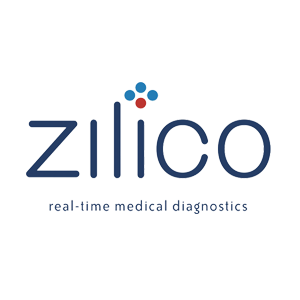Invention written in the stars
A chance encounter between a clinician and an academic researcher resulted in a consensus. They believed the current model for cervical cancer diagnosis was taking too long and was missing a number of cases.
We really believed we could do a lot better, and that the issue was only going to become more damaging as time went on,” explains CEO Sameer Kothari. In 2006, the Zilico founders got to work creating ZedScan, a unique patented product that provides cervical cancer diagnosis results in real-time.
Life-changing products take time
As with many medical innovations, ZedScan has followed the long pathway to clinical validation. “Healthcare is a conservative industry,” Kothari explains. “With medical devices, it takes years of development and testing before a product can achieve regulatory approval.”
When bringing something new to market the sales cycle is long and clinicians need evidence of efficacy before they can confidently adopt it into routine use. “Our aim is to achieve acceptance through proven outcomes in a significant number of UK hospitals, and if you look at any medical product then it will probably go through a similar route,” says Kothari.
With medical devices, it takes years of development and testing before a product can achieve regulatory approval.
Sameer Kothari, Zilico
Development hindered by the financial crisis
During the long product development journey, Zilico became a victim of classic economic downturns. Kothari believes the financial crisis impacted companies like Zilico, which require long-term growth capital, making them less attractive to investors.
“The capital markets downturn meant companies went to private equity and venture capitalists for their growth capital,” he explains. “At the same time, the private equity and venture capital investors were looking for less risky businesses that were slightly more advanced.” Zilico was left with a funding hole.
Perseverance pays off
Following a financially challenging period, Zilico’s ZedScan finally achieved regulatory approval in 2013 and launched commercially in 2014. The National Institute for Health and Care Excellence (NICE) issued an Innovation Briefing (MIB 20) on ZedScan, in 2015. The product is now routinely used in numerous UK hospitals, with a number of hospitals across the UK and Europe currently undergoing a service evaluation.
Following this success, Zilico secured £3m in EIS funding from Deepbridge Capital in 2017. “The EIS scheme with its expanded limits lets us access meaningful growth capital,”
Kothari explains. “EIS has become a real option for growth capital.” Kothari speaks positively about his EIS investors’ investment model: “It allows trusted advisors to make an educated decision on the portfolio companies on behalf of investors,” he explains. “EIS funding allows Zilico to access generalist investors outside of medical specialist circles.”
Taming the commercial beast
Zilico’s ongoing scale-up challenge is to tackle the business’ commercial success by introducing ZedScan into a number of new markets. Zilico then secured a grant from the World Bank to pilot ZedScan in India. The company has also recently announced a lucrative strategic deal with MaxHealth Medicine Group, a Chinese healthcare company based in Wuxi.
“We have de-risked the technology, science, supply chain, and the manufacturing – it is now all about the commercial challenge which we’re driving,” explains Kothari. After much patience, the long process of gaining product acceptance is finally paying off.

